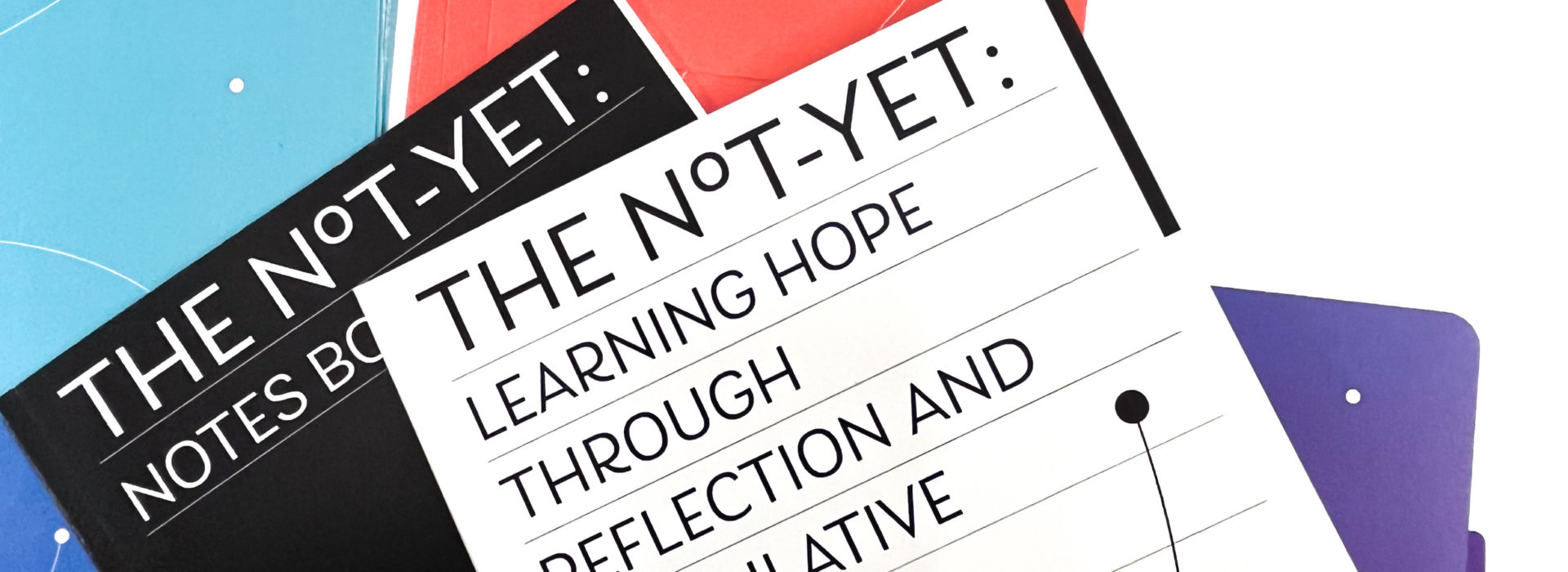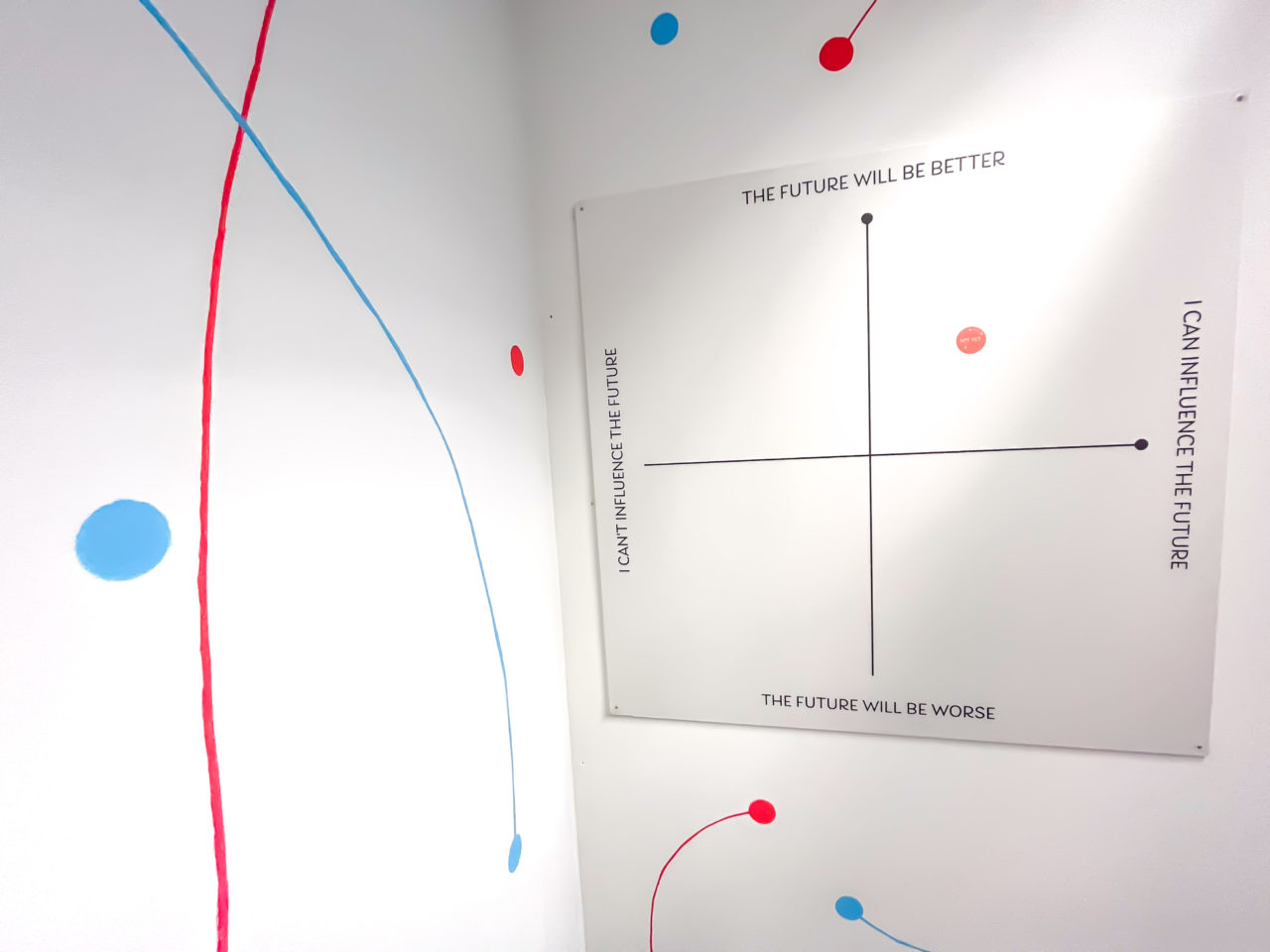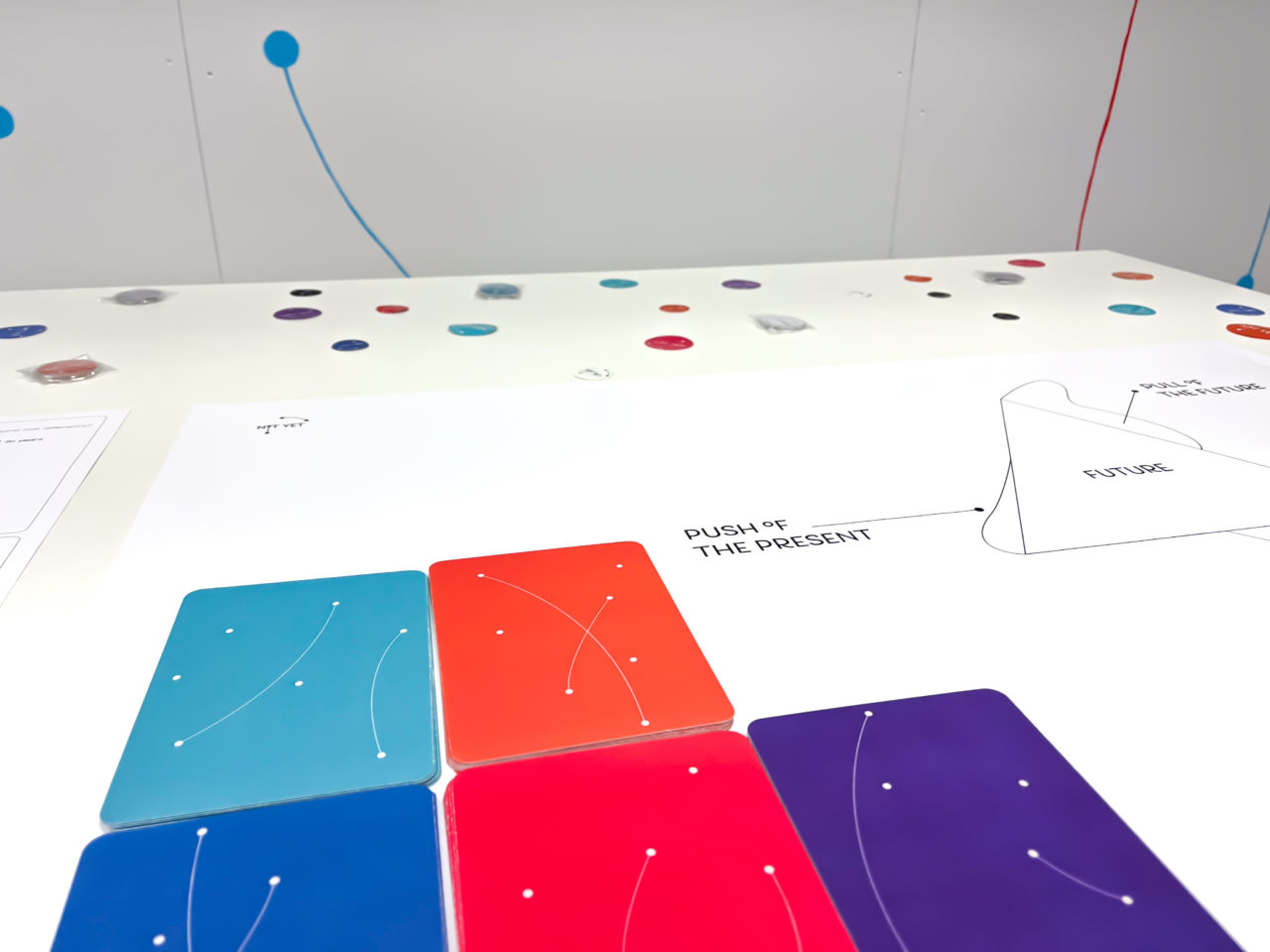The Not-Yet: learning hope through reflection and speculative writing

Project details
- Year
- 2023
- Programme
- Bachelor – Graphic Design
- Practices
- Honours Programme
- Minor
- RASL: Re-imagining tomorrow through arts & sciences
The Not-Yet is a hybrid publication that helps people deal with the feeling of hopelessness by imagining their preferred future. I started by investigating speculative writing, a genre driven by limitless imagination and allows its readers to explore different possibilities. I explored this topic in the context of the Romanian Revolution in 1989 and activist communities. Later, I researched Future Studies, which originated as a discipline in-between other disciplines. Its focus is on possible, probable, and preferable futures, and it aims to inform and prepare organizations for (un)expected changes and create strategies accordingly.

I investigated and highlighted the interconnections between speculative writing and Future Studies and created a method that draws from the knowledge of both and explores the future in a creative and interactive manner. My goal is to help people reflect on the future and gain agency. The Not-Yet contains exercises that can be used individually or in a group setting, accompanied by cards, pins and written material.
But before going in-depth into the methodology and goals, I would like to take a step back and look at how it all started. While researching topics for my graduation project, I noticed our current society faces complex issues, such as the Covid-19 pandemic, the war in Ukraine, the food and energy crisis and extreme weather events. Given the fast spread of information across the globe, there is a lot that a person can care about – though no individual alone can tackle these issues by themselves.
Considering the issues mentioned, we live in Postnormal times. The Postnormal is defined by The Centre for Postnormal Policy & Future Studies as “an in-between period where old orthodoxies are dying, new ones have yet to be born, and very few things seem to make sense.” They argue that surprises and crises have become familiar, as everyday life can change quicker than before, and mindsets change along with it.

I have also noticed many people with the capacity and motivation to create positive change are feeling defeated. I thought about my attitude towards the future and realized I am not too optimistic about it either. All these issues surrounding us can feel heavy for a young person. Hopelessness can manifest itself in several ways, from negative thinking patterns, anxiety and depression to cynicism and a general distrust in society.
I argue that hopelessness is linked to the belief that the future is pre-defined and that we cannot do anything about it. But we can control our actions and attention, hugely influencing the future. And we need to hope for something to be able to keep going. I describe hope as the driver for change: a controlled change that can lead you to a more desirable reality. I decided to create a project that addresses the feeling of hopelessness since I believe positive thinking can lead to a sense of agency and determine people to act.
The spread of hopelessness and the fast development of changes symbolize a need to develop alternative ways of talking about the future. I am fascinated by the role that speculative writing can have in gaining hope since I believe we first have to be able to imagine alternatives together to start building them in the here and now. I derive a sense of urgency to develop a method to help people deal with rapid changes, imagine alternative futures, and maintain hope.
By mapping the past, present, and future and then slowly moving to anticipation and consequences, the alternative future created in the speculative piece is grounded in reality.